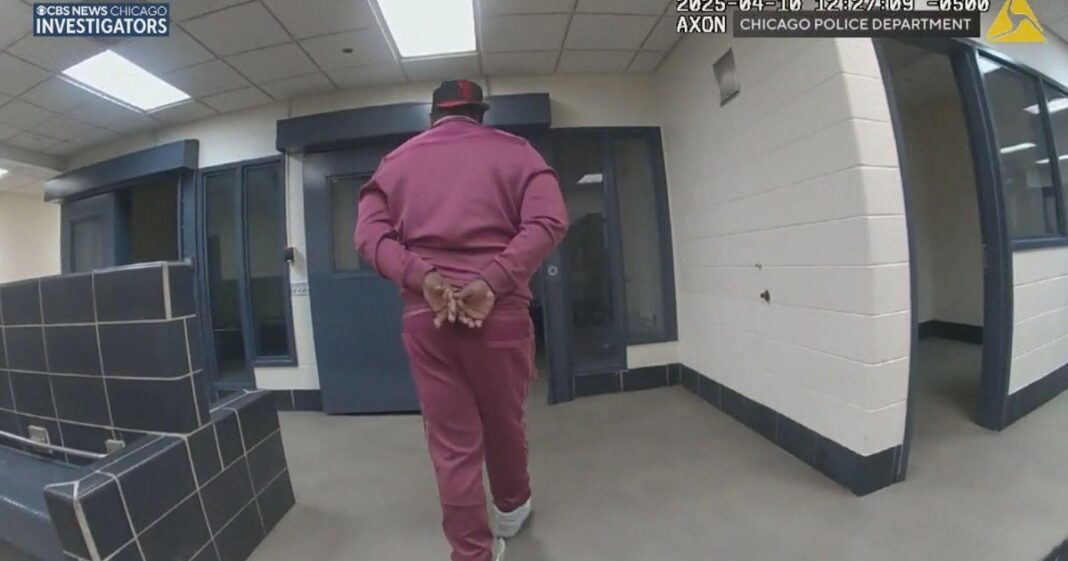Discrepancies in Gun Ownership and Law Enforcement: A Deeper Dive into Chicago’s Civil Rights Concerns
The Problem Unveiled
An investigation by CBS News Chicago has revealed alarming instances where Black gun owners have faced felony charges following police stops for minor traffic violations. Despite possessing valid firearm licenses, many individuals found themselves entangled in a legal quagmire, spending significant time and resources to clear their names. This raises essential questions about civil rights and law enforcement practices in Chicago.
The Impact of Misidentification
The ramifications of these wrongful arrests are not just legal; they carry emotional and financial burdens as well. Louis McWilliams, a 46-year-old resident of Tinley Park and owner of Ann’s Flavored Cheesecakes, is one of the motorists affected. After being stopped for an alleged missing front license plate, McWilliams was charged with felonies despite presenting a valid Firearm Owner Identification (FOID) card and concealed carry license (CCL).
Faced with a legal ordeal, McWilliams described the experience as traumatic, stating, “I feel like my rights were violated.” A quick glance at the arrest report reveals the acknowledgment of his valid licenses, yet the officers opted for arrest based on a database discrepancy. This highlights the significant gap between legal rights and their on-ground application.
A Flawed System
The body camera footage from McWilliams’ stop offers a stark portrayal of a flawed system. After declaring his legal ownership of a firearm, McWilliams was told by officers that his CCL was not found in the Illinois State Police database—LEADS. Irv Miller, a legal analyst for CBS News, expressed disbelief over McWilliams’ charges, stating that showing a valid CCL should have sufficed to prevent his arrest.
Illinois law stipulates that a valid FOID card and CCL authorize an individual to carry a firearm legally. However, a lack of accurate data in the LEADS database led to McWilliams’ unwarranted arrest, illustrating a troubling disconnect between legal standards and enforcement practices.
The Broader Impact: Loss and Struggle
The consequences of these arrests extend far beyond legal battles. McWilliams recounted losing potential business opportunities due to his arrest, stating, “I couldn’t make the meeting and lost a deal with a major franchise.” Beyond financial implications, he shared his challenging experience in holding cells, which he described as “deplorable,” filled with insects and unsanitary conditions.
For McWilliams and others like him, the journey doesn’t end with charges being lifted. Many are now in a prolonged process of ensuring their records are clear of any criminal history. The emotional toll and financial strain accumulate exponentially as they embark on this arduous path to vindication.
Patterns of Concerns
While precise statistics are elusive—neither the Chicago Police Department nor the Cook County State’s Attorney’s Office tracks wrongful gun possession charges—there appears to be a disturbing pattern. Lucy Washington, another victim of this systemic failure, experienced her own nightmare after being stopped for a minor traffic infraction. Despite having renewed her CCL, she was arrested based on misleading information provided by police.
Washington expressed her fears about her real estate license being jeopardized due to a wrongful felony charge: “I can lose my broker license.” Similar to McWilliams, her charges were ultimately dismissed after she expended significant time and resources on legal fees.
Legal and Emotional Impact
The mismatch between police actions and legal justifications raises serious concerns over trust in the judicial system. Lawyers representing the arrested individuals, like Brandon Brown, argue that these incidents damage community relationships with law enforcement. As Washington noted, the stigma attached to her wrongful arrest affects not only her reputation but also her business prospects.
Voices of Advocacy
Phil Smith, the founder and president of the National African American Gun Association, voiced frustration over these unjust scenarios. He noted a significant rise in Black gun ownership in recent years, driving the need for increased awareness and support within the community. Smith highlighted the historical context of police interactions with Black gun owners, citing tragic incidents involving figures like Philando Castile and Duante Wright.
While the investigation exposed systemic failures, both McWilliams and Washington have resolved to pursue legal actions against the police department for violating their rights. Their stories resonate with many who feel beleaguered by a system that appears not to safeguard law-abiding citizens.
Continued Struggles
As McWilliams works to rebuild his cheesecake business, he grapples with the lingering effects of his arrest. Despite a court order for the return of his firearm, he remains without it—a further reminder of the complexities of navigating one’s Second Amendment rights in a system that often seems unsympathetic to their plight.
Washington, too, continues to face difficulties in her career due to the shadow of wrongful arrests. With both individuals actively seeking reparations through lawsuits, their experiences serve as critical examples of the urgent need for reform in law enforcement practices surrounding gun ownership, particularly in marginalized communities.
An Ongoing Dialogue
The plight of McWilliams and Washington raises vital questions about systemic biases in law enforcement, especially concerning Black gun owners. These narratives emphasize a pressing need for an ongoing dialogue about civil rights, police accountability, and the public’s trust in law enforcement.



